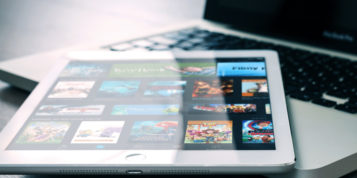The big campaign winners usually steal the headlines at Cannes Lions. But at this year’s event much has been made of the obvious ‘shifting sands’ at the festival. What was once a paradise where creatives would charm the bosses who spend vast amounts of money on their time and talent is slowly becoming a broken home. And according to the media, a messy divorce is the inevitable outcome.
Hotels, parties and jetties previously draped in the livery of major brand players or agencies are being commandeered by the digital big boys and smaller, innovative tech start-ups. Facebook set up shop where Pepsi once entertained, Google’s gang rubbed shoulders with WPP, publisher PCH moored up on Yacht Row and multi-billion dollar app Snapchat’s ferris wheel towered above them all. True creatives (and long-time Cannes Lions faithfuls) bemoan the invasion. An attack on traditional marketing, the end of TV or print advertising and an affront to the importance of creativity when it comes to promoting brands and their products are the typical soundbites.
Interestingly though, like the rest of the world Cannes Lions functions on technology. Journalists and bloggers scatter with their laptops to file commentary in a heartbeat. Guests share their selfies on Facebook while Snapchat updates them all with stories based on their location. They use Google Maps to find their way to the hottest restaurant and then head back to the AirBnB they booked with their phone. There’s no stopping new innovations from moving forward because invariably they find a way to do things better. And when it comes to marketing they are providing a way for us to deliver the convenience, content or entertainment we all crave regardless of the device we’re on, in a split second.
Using new technology to help brands reach consumers through the right channel, at the precise moment they are likely to respond combined with the best possible creative must now be the goal. Creative agencies and the talent within them need to work alongside technology partners and platforms to achieve the holy grail of modern marketing – meaningful customer connections. This is going to require us all to create unions not divisions – ‘amor’, not war.
At Rocket Fuel our Predictive Marketing platform uses artificial intelligence to gain insights into a brand’s customers from oceans of data. Then it matches their behaviour to other consumers online, discovering new customers at scale and at speed. The process ensures a far superior experience for the end user – adverts and products that they actually want or need, making the ad more effective and increasing ROI. However, the creative at the customer end has an important part to play in what we do. As always, in order for marketing to be effective the message and visuals need to be smart and well thought out. And increasingly we will see brands demanding clever, appealing and engaging creative that entices clicks.
Those in creative roles or industries might also seek comfort in the results of a Rocket Fuel survey recently carried out globally to gain opinions from consumers on the impact of artificial intelligence. 75% of the people we interviewed stated they don’t believe AI will ever replace creativity or human emotion. Great news for an industry that thrives on ideas.
I would argue that it’s the industry, the talent and the consumer that drives what is a success on La Croissette. Kath Hipwell explained it well in The Drum this week, comparing Cannes Lions to another famous festival by stating: ‘Glastonbury’s Pyramid Stage doesn’t belong to Radiohead: they’ve had to earn their place time and time again.’ The message here being trends, tribes (and brands willing to part with the cash to have a large presence) are the drivers at any commercial conference or festival. It’s our role to keep an eye on the direction consumers are heading and the technology that will help us reach them. Combine this with creative brilliance and agencies and tech partners can expect a long, happy, successful marriage.





